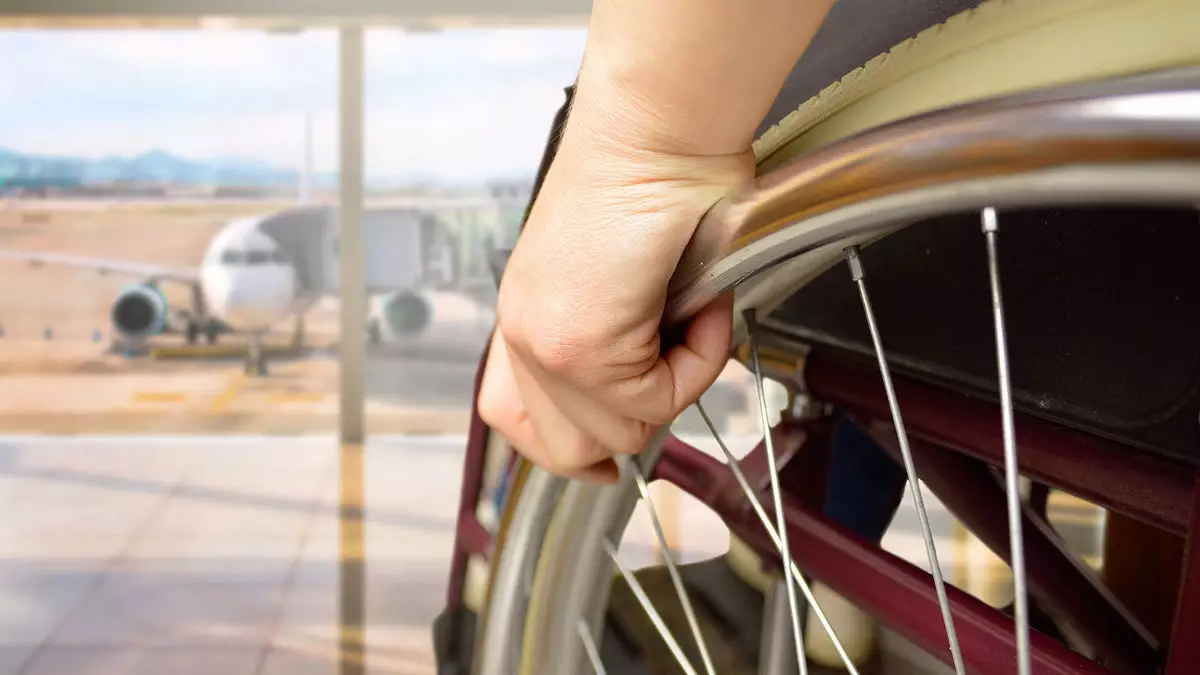Advocacy groups representing individuals with disabilities have expressed their satisfaction with the recent FAA funding reauthorization bill, which aims to enhance safety and comfort for travelers with disabilities. Angel Hardy Heinz, the public policy manager for the Christopher & Dana Reeve Foundation, commented on the extensive efforts made by a coalition to incorporate various aircraft accessibility measures into the bill. The legislation encompasses training requirements for workers responsible for wheelchair stowage and passenger assistance, as well as mandates for considering disabled passengers during aircraft evacuation tests.
One significant aspect of the bill is the directive for the FAA to evaluate the feasibility of airlines offering at least two wheelchair-friendly seats in the economy cabin. Furthermore, the Department of Transportation (DOT) is tasked with developing regulations over the next three years to ensure appropriate seating arrangements for individuals with disabilities, including the possibility of sitting next to a companion or accessing premium seating areas. The legislation also addresses accessibility concerns related to passenger portals, such as airport kiosks and airline websites, to accommodate travelers with varying disabilities.
John Morris, founder of the WheelchairTravel.org advocacy group, emphasized the importance of specific provisions within the bill concerning worker training and passenger assistance. The new law stipulates mandatory training for employees handling wheelchair-related tasks, with requirements for initial certification and subsequent recertification every 18 months. This initiative aims to improve the quality of passenger support and minimize incidents of wheelchair damage during air travel. Additionally, the legislation includes a provision requiring prompt written responses from the DOT regarding accessibility-related complaints within four months.
One of the critical components of the legislation highlighted by Morris is the FAA’s mandate to reassess aircraft evacuation testing procedures. While current regulations demand the ability to evacuate an aircraft within 90 seconds, recent tests did not involve individuals with mobility disabilities, seniors, or children. The upcoming evaluation aims to address these shortcomings and identify potential factors that could impede efficient evacuations, ensuring inclusivity and safety for all passengers.
The collaboration between the DOT and the aviation industry to explore the accommodation of personal wheelchairs on aircraft reflects a proactive approach to accessibility. The bill encourages research and development initiatives within the private sector, as evidenced by recent prototype solutions presented at industry expos. Companies like Delta Flight Products and Collins Aerospace have demonstrated innovative wheelchair-friendly designs, signaling a positive shift towards greater inclusivity in air travel.
The FAA funding reauthorization bill represents a significant step forward in promoting accessibility and support for passengers with disabilities within the aviation sector. The collaborative efforts of advocacy groups, government agencies, and industry stakeholders are poised to improve the overall air travel experience for individuals with diverse mobility needs. By prioritizing training, regulation, and innovation, the aviation industry can continue to advance towards a more inclusive and accommodating environment for all passengers.

